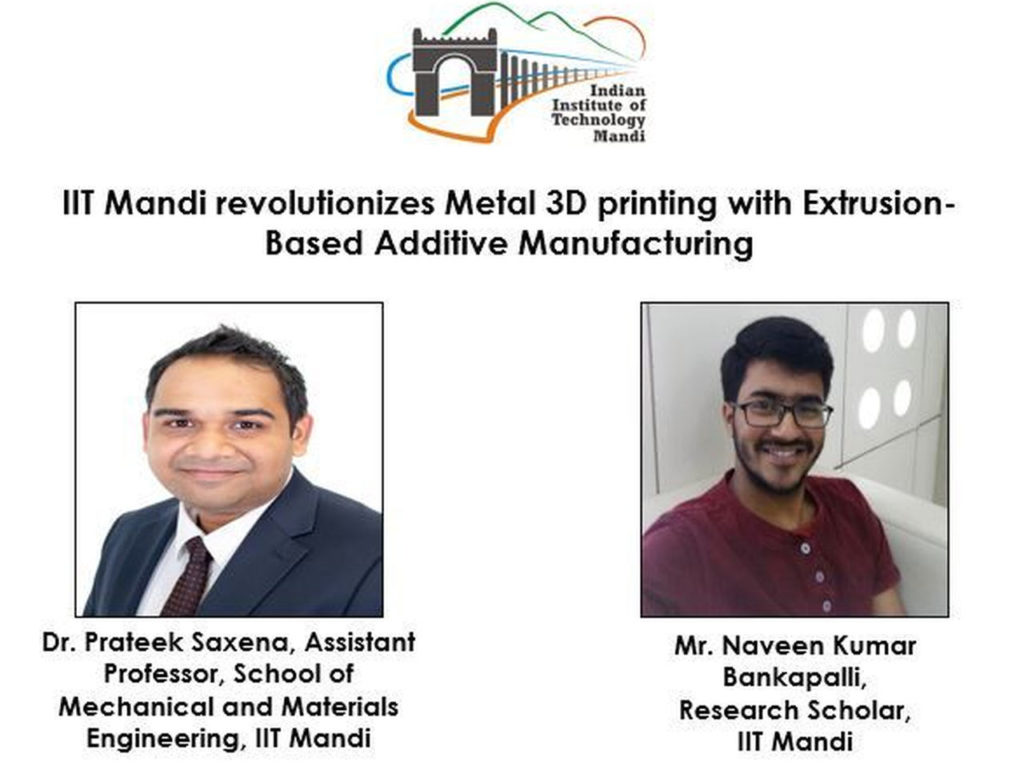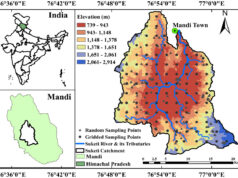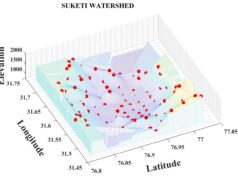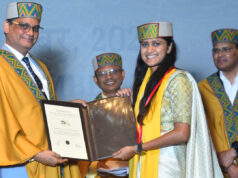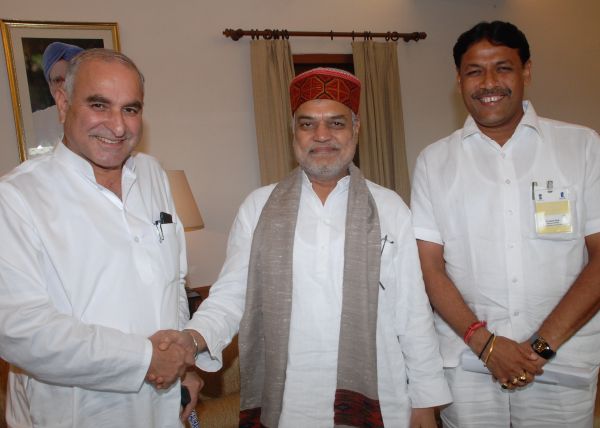Mandi – In a groundbreaking development, researchers from the Indian Institute of Technology Mandi have pioneered a new era in metal additive manufacturing (metal AM). Their comprehensive analysis highlights the extrusion-based metal AM process as a superior, cost-effective alternative to conventional methods, paving the way for innovation in diverse industries.
Metal additive manufacturing, using fine metal powders, has found applications in aerospace, automotive, biomedical devices, and more. The layer-by-layer manufacturing process allows for the creation of intricate components through computer-aided design (CAD) programs or 3D scanning. The team, led by Dr. Prateek Saxena, has detailed the extrusion-based process, termed mFFF/FDMet, in their publication in the journal Composites Part B.
Naveen Kumar Bankapalli, a research scholar at IIT Mandi, emphasized the real-world implications of their findings, stating, “This analysis empowers individuals, industries, or researchers to independently develop and implement this technology, facilitating cost-effective mass production of metal parts.” Notably, the extrusion-based process stands out in aerospace applications due to its lightweight nature.
Compared to popular metal AM technologies like Powder Bed Fusion (PBF) and Direct Energy Deposition (DED), the extrusion-based method offers distinct advantages. It is more cost-effective, less hazardous, and provides greater design freedom. The mFFF/FDMet technique, utilizing unique filaments composed of polymeric additives and metal powder, allows for versatile shaping while avoiding hazards associated with fine metal powders in other processes.
Despite a lengthier five-step process, including filament fabrication, additive manufacturing, debinding, sintering, and post-processing, the extrusion-based method proves more economical for mass production of metal parts. Dr. Prateek Saxena stressed the importance of breaking the monopoly held by foreign companies in metal additive manufacturing, stating, “Our aim is to empower potential producers with a thorough understanding of the process, enabling independent development of the technology.”
As the global metal 3D printing industry gains momentum, with initiatives such as the US Air Force’s AM lab and Indian steel giants entering the fray, the Indian government is committed to developing indigenous products for various sectors. The researchers’ detailed analysis provides a valuable resource for potential producers looking to conduct cost-effective and efficient metal 3D printing, based on insights gathered from global studies. The revolution in metal additive manufacturing led by IIT Mandi promises a safer, more design-friendly, and economically viable future for the industry.


